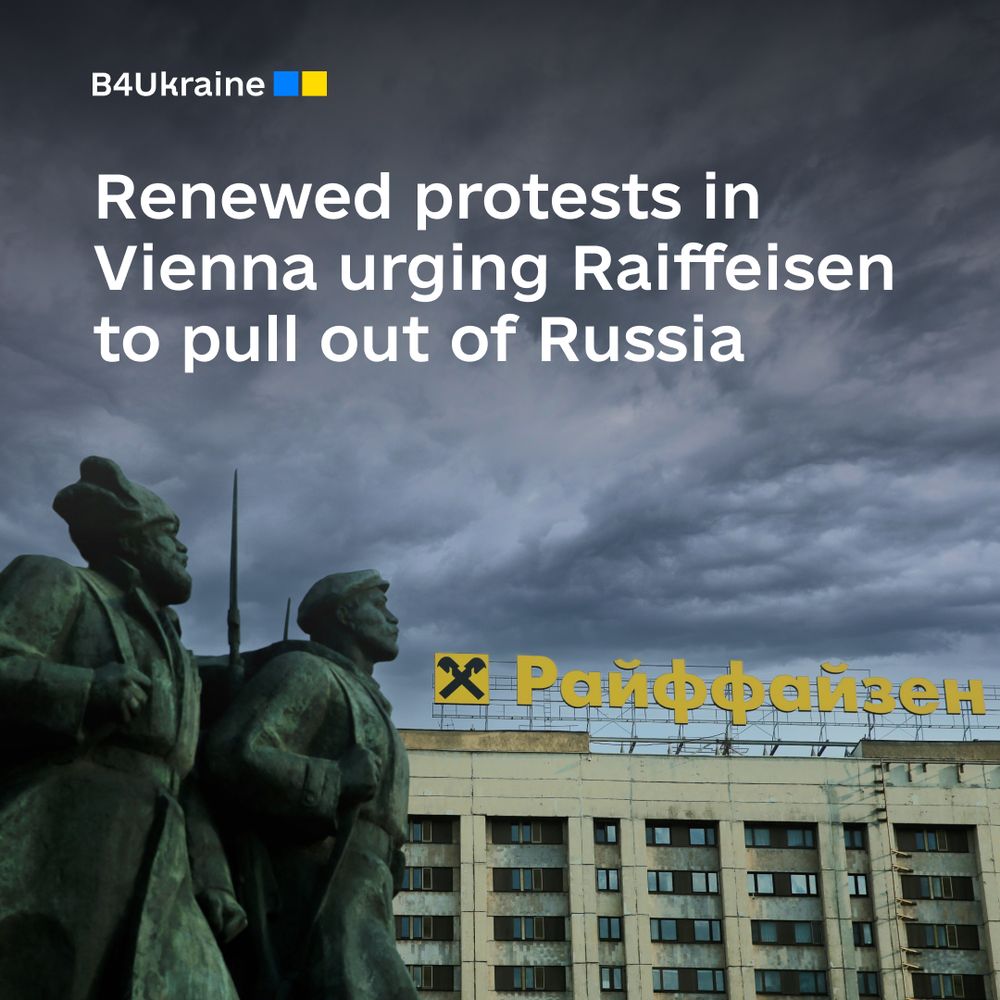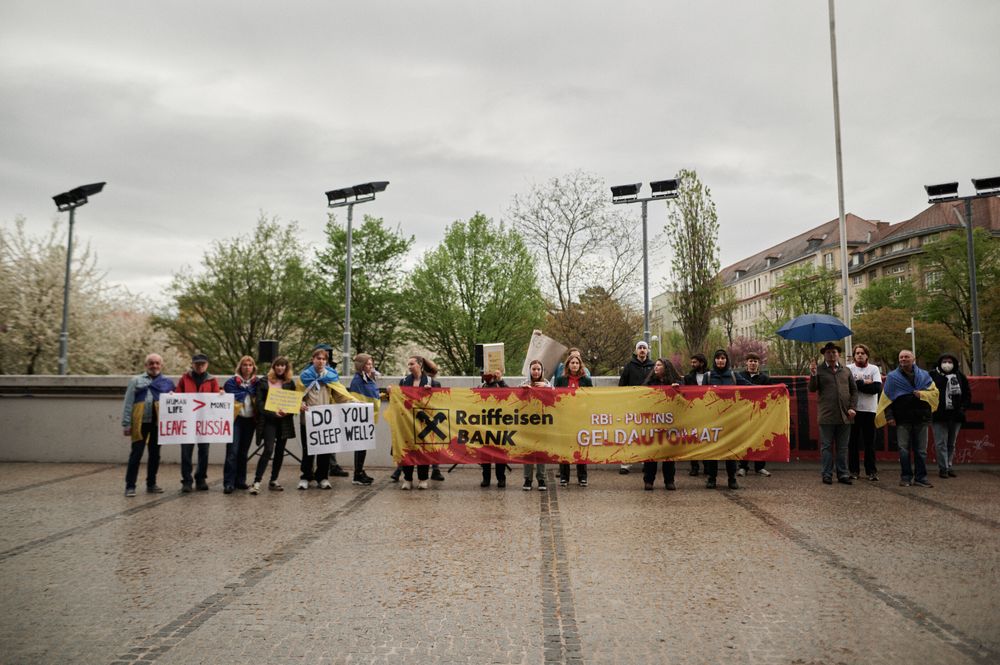
Activists converged outside the Wiener Stadthalle arena in Vienna on Thursday, April 4th, urging Raiffeisen Bank’s board members to close down its business in Russia. The WeMove Europe petition, organised in partnership with the B4Ukraine Coalition and BankTrack, gathered over 50,000 signatures by April 4th, the day of the AGM.
Inside the AGM, activist Victoria Nikolaevskaja confronted the CEO Johann Strobl with questions about the bank’s continued Russian business and profitability: “Russia’s unlawful invasion of Ukraine has led to nearly 10 million displaced people and over half a million deaths. What else will it take for Raiffeisen to pull out?!”
Responding to Nikolaevskaja, Strobl said that the group has a “clear stance on the war in Ukraine”. “We are striving for de-consolidation. This could possibly include a sale, possibly another solution. I believe it wouldn’t serve anyone if we were to give away the bank. But that would also require approval from the Russian authorities,” he said.
Austria’s Raiffeisen Bank International AG is the biggest foreign bank still present in Russia, accounting for roughly one quarter of euro transfers to the country and handling up to 50% of all the money flows between Russia and the rest of the world. In 2023, RBI made record profits in Russia amounting to 1.35 billion euros (1.47 billion dollars), almost half of its global profits made in the same year.
“The RBI has been talking about exiting Russia for more than two years — but so far it has done nothing. Instead, it is currently advertising on its own website that it is ‘continuously introducing new products and services’ in Russia,” highlighted Giulia Barbos from BankTrack.
In the last two years, RBI paid more than a billion euros in taxes in Russia. A third of this goes to Russia’s military budget. “The RBI is helping to finance Putin’s war in Ukraine,” stated Barbos. In addition, RBI remains one of the largest EU investors in Russian oil and gas companies, indirectly boosting Moscow’s ability to finance its war efforts.
Due to western sanctions, the earnings generated by RBI in Russia remain with the local subsidiary. The bank is currently unable to transfer more than three billion euros from the country ruled by accused war criminals.
In December, RBI announced its intention to exchange the profits frozen in Russia for shares of Austria’s construction company Strabag, owned by the sanctioned Russian tycoon and Putin confidant Oleg Deripaska, through an interim transaction that has already been executed. The bank portrayed the deal, channeled through Russia, as a mechanism for accessing a portion of the billions of euros stranded in Russia and potentially loosening its ties.
“Instead of withdrawing from Russia, the RBI apparently prefers to do business with a Russian war profiteer whose GAZ company produces tanks for the Russian army. The Deripaska deal shows that the RBI and Russian oligarchs pursue common interests — maximizing profits at all costs,” said Mario Taschwer from Attac Austria.
Reuters reported on March 20 that US Treasury officials have expressed their concerns about the 1.1 billion euro transaction in meetings with the bank and Austrian authorities.
CEO Strobl told shareholders during Thursday’s AGM that the bank had answered questions from multiple authorities, including those from the United States. “We continue to believe … that such a transaction is legal and possible,” he told shareholders.
B4Ukraine and BankTrack call on the Board of Raiffeisen Bank to write off the bank’s Russian assets and, as other lenders have done before them, exit Russia as soon as possible — without handing over valuable assets that could be used to prolong its war against Ukraine.
